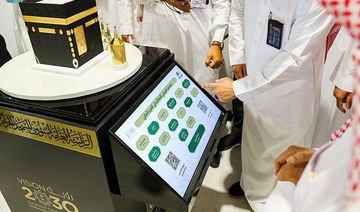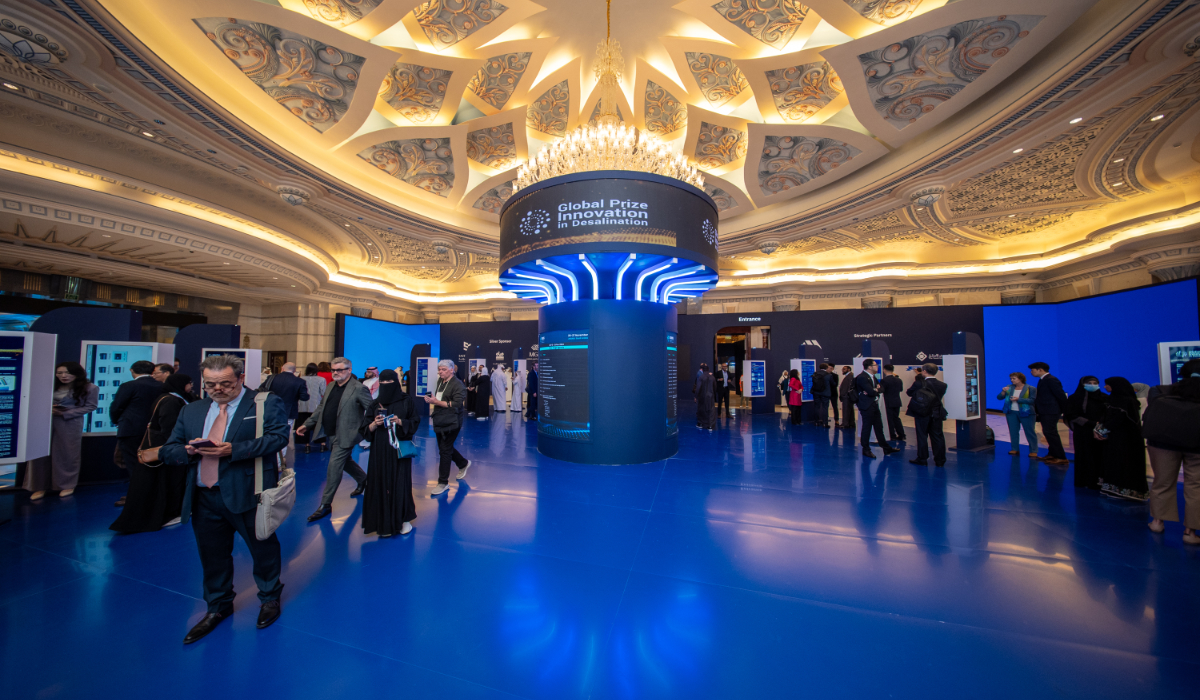MAKKAH: Makkah is renowned for being a vibrant, cosmopolitan city throughout the year. As host of the Hajj pilgrimage and the long Umrah season, it attracts visitors from all around the world and immerses them in its culture, identity and rich heritage — especially during the holy month of Ramadan.
“Umrah pilgrims share their joys, occasions and meals with the locals,” said Sami Al-Maabar, the mayor of the city’s Al-Rusaifa district. “All of the neighborhood’s residents are very excited to participate in the annual Ramadan celebrations, which bring people closer together.”
Makkah is a city with a unique, spiritual identity. Muslims from all corners of the world flock there, carrying with them their hopes, prayers, cultures and heritage, which they share with the local communities that welcome and embrace them with love and respect.
“Locals gather to meet after Tarawih prayers,” said Al-Maabar. “They see Ramadan nights as a chance to share meals, exchange old stories, and talk about the cultural symbols that enriched the cultural and social scenes in times past.”
Makkah has played a pioneering role in many ways through the years and continues to do so. It is considered one of the most important historical cities in the world. Many historians have written about it and the ways in which it has shaped the hearts and minds of Muslims all over the world.
The city is built on the heritage of the Arab and Islamic worlds, a homogeneous model that absorbs from the cultures of the pilgrims and inspires the locals.
Al-Maabar noted that residents throughout the city are always keen to participate in Ramadan traditions, including the preparation of iftar meals for pilgrims.
“Although most slums have been removed, the locals still carry their ancient culture within themselves and continue to revive the spirit of mini-communities on every occasion,” he added.
HIGHLIGHTS
- Makkah has played a pioneering role in many ways through the years and continues to do so. It is considered one of the most important historical cities in the world. Many historians have written about it and the ways in which it has shaped the hearts and minds of Muslims all over the world.
- The city is built on the heritage of the Arab and Islamic worlds, a homogeneous model that absorbs from the cultures of the pilgrims and inspires the locals.
The celebrations that take place in the neighborhoods of Makkah are unforgettable to all those who visit. During Ramadan nights they evoke great feelings of nostalgia as people enjoy the wonderful atmosphere in local communities while sipping the Sobia (a cold Hijazi beverage) and berry drinks associated with Makkah’s neighborhoods, especially during the holy month.
Fahd Al-Harbi, the mayor of Thakher neighborhood, said that locals prefer not to communicate with each other through social media during Ramadan other than to organize in-person gatherings.
“They believe Ramadan is a month for reconciliation and strengthening the bonds of love and respect, and they insist on meeting in what is known as al-markaz (a dedicated space for gatherings),” he said. “They exchange anecdotes and neighborhood news after they perform their Ramadan rituals.
“Children are also a large part of Ramadan nights; they play games that some neighborhood residents insist on involving everyone in, such as foosball, which is particularly popular during Ramadan.”
He added that the seasonal celebrations in Makkah are accompanied by the loud voices of street vendors who compete to attract pilgrims by chanting in beautiful, melodious voices. These chants, he said, are part of the city’s collective memory and enhance its spirituality.
The preparations for Ramadan begin long before the holy month arrives, said Al-Harbi. Many of the festivities are related to Makkah’s culture and heritage, which reflect the bonds between communities and their love of shared celebrations, especially during the holy month.
































